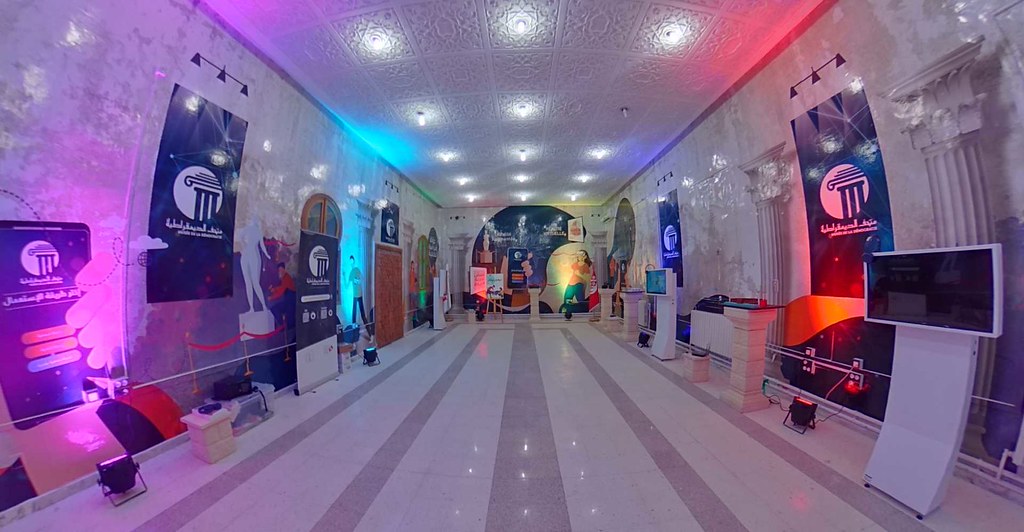
Leveraging New Technologies to Make Civic and Electoral Information Accessible to All Tunisians
In the last 10 years, Tunisia has undergone major political and institutional transformations, most notably the adoption of the 2014 Constitution, which established a new system of government and decentralized power. Simultaneously, however, Tunisians have limited opportunities to learn about the new system, public institutions and broader political and electoral topics, leaving many struggling to understand the changes.
This is especially true among marginalized groups, including persons with disabilities and young people. Persons with disabilities are often among the most excluded from public life due to a lack of formal and informal education and a lack of civic information in accessible formats. Young people are increasingly disillusioned with the democratic transition as an already weak economy, made weaker by the COVID-19 pandemic, continues to limit employment opportunities. Overall, Tunisia is facing a growing loss of confidence in democracy’s ability to deliver improved social and economic outcomes, resulting in increased public apathy and decreased participation in civic and electoral life.
“Before [the Democracy Exhibit], hard-of-hearing persons did not understand elections, but through this experience, electoral information became accessible. I understood a lot of new concepts." – Ahmed, exhibit visitor who is hard-of-hearing
In response to these challenges, the International Foundation for Electoral Systems (IFES) developed the New Tech Inclusive Democracy Exhibit with support from the United States Agency for International Development through the Consortium for Elections and Political Process Strengthening. The Democracy Exhibit uses new technologies to teach visitors about democracy and elections in an accessible manner.
“The VR experience was simply magnificent. I felt so delighted to be included in the polling station through virtual reality. The fact that sign language interpretation was assisting me all the way through the voting simulation made me understand the process from A to Z. The technology was very useful and enriching that I didn’t feel marginalized or had any communication issue.” – Aymen, Deaf activist who visited the exhibit
Initially launched during Tunisia’s International Day of Democracy celebrations in 2020, the Democracy Exhibit provides visitors with information about Tunisia’s political history, the concept of democracy and the role of public institutions, civic engagement, and elections, and incorporates new technologies, including augmented reality, virtual reality (VR) and interactive videos. IFES designed the exhibit to be accessible to all through the creation of three versions: a full audio-visual version, a sign language version for persons who are deaf or hard-of-hearing, and an audio version with a screen reader for persons who are blind or have low vision.
The exhibit particularly appeals to young people, given its use of new technologies. Young Tunisians, many of whom have turned 18 since 2011, have felt excluded from political processes and sidelined from decision-making. The Democracy Exhibit presents young people with opportunities to learn more about democracy and provides them and other first-time voters with resources to further their civic and political engagement.
“It was my first time trying a virtual exhibit and it’s the most innovative exhibit ever. I was very attracted and interested by the stations, I didn’t feel bored or overloaded by information, the approach was great and super smooth and simple just like a game." – Chayma, 19-year-old law student who visited the exhibit
Given the ongoing COVID-19 pandemic and restrictions on in-person gatherings, IFES complemented the physical exhibit with an online platform and mobile application, through which users can access a 360-degree virtual tour of the physical exhibit. The online platform and mobile application, available for download on the Apple Store and Google Play Store, contain the same features as the physical exhibit, including new technologies and the same interactive experience.
Since the Democracy Exhibit’s inception, over 1,000 visitors have accessed the online platform. IFES also partnered with the Tunisian election management body, the High Independent Authority for Elections (ISIE), to publicize and expand its reach for future visitors. The ISIE’s cooperation enabled IFES to move the physical exhibit to the ISIE regional headquarters in Tunis in early 2021. Once the health situation allows, IFES, the ISIE and several ministries will partner to tour the exhibit in regions around the country.
“I mostly enjoyed the virtual reality experience. I loved the moment. I have never voted before and the VR simulation explained all the details of how to vote. It really encouraged me to vote!” – Ayoub, 18-year-old visitor to the exhibit
The Democracy Exhibit provides Tunisians with a greater understanding of political and electoral processes and their rights and responsibilities as citizens in accessible formats to encourage them to participate more fully in democratic processes, both during and between elections. The future of Tunisia depends on all Tunisians, and, as such, civic education must be inclusive and accessible to all.
Visit the photo gallery here or by clicking the photo below.
The New Tech Inclusive Democracy Exhibit.
Published April 13, 2021.















